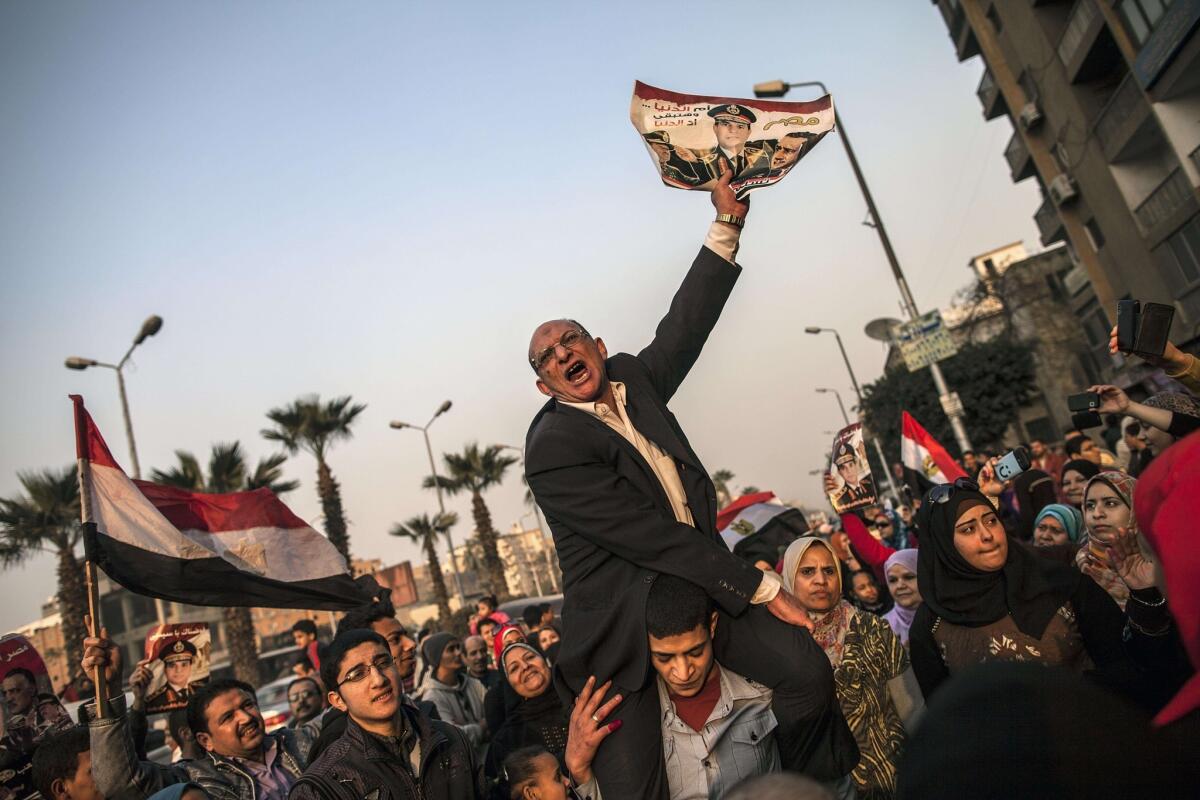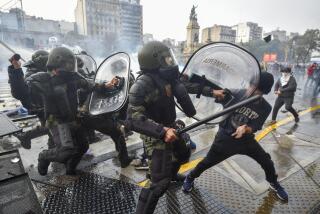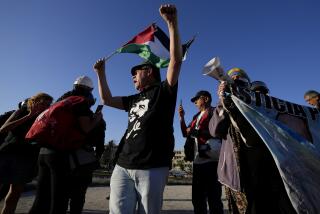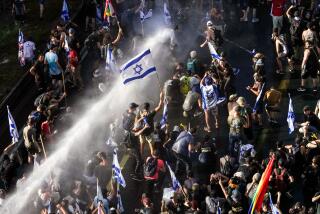Clashes mar vote on Egypt’s proposed constitution; 11 killed

CAIRO -- Until the early-morning explosion that jolted his wife and children from their beds, Waleed Abdel Salem hadn’t even planned to vote in Egypt’s constitutional referendum.
But by midmorning Tuesday, the first of two days of voting, the 42-year-old father of three was standing in a long line with dozens of voters, determined to cast a ballot in favor of Egypt’s proposed national charter, and hoping that an overwhelming yes vote would nudge army chief Gen. Abdel Fattah Sisi to seek the presidency.
“We need security,” he said. “The rest, we can work out later.”
At least 11 people were reported killed nationwide Tuesday in clashes between supporters of Egypt’s ousted president, Mohamed Morsi, and security forces. The bloodshed was in keeping with a grim pattern of political violence that has plagued the country for nearly three years since the 2011 fall of autocratic leader Hosni Mubarak.
The referendum, the first balloting since Morsi’s overthrow six months ago, was widely viewed as a verdict not only on the proposed constitution, but on whether the army was correct to remove the Islamist president from power after enormous protests demanding his ouster.
Morsi’s Muslim Brotherhood called for a boycott of the referendum. Perhaps as a result, an overwhelming majority of those turning out at voting precincts in Cairo were over-the-top fans of the general and of the proposed charter.
In central Cairo, women ululated shrilly in celebration as they prepared to cast their ballots, and men -- waiting in separate lines -- were eager to explain why they believed the future lay with Sisi, who spearheaded the July coup.
“He is the best man to lead the country, and we need him now,” said Abdel Salem, who lives only a few hundred yards from a courthouse in Cairo’s Imbaba district that had been hit by an explosion early Tuesday.
The blast, which did not injure anyone, and for which there was no immediate claim of responsibility, sheared off masonry from the building’s facade and shattered windows across the street.
The proposed constitution enhances the already considerable powers of Egypt’s military. But it also rolls back Islamist provisions ushered in under Morsi and decrees rights, including gender equality.
The interim government calls the vote a first step in a “roadmap” meant to restore democracy in Egypt, a process that is to include presidential and parliamentary elections this year.
Rights groups, however, have pointedly questioned whether provisions of the charter would be enforced, especially in light of the authoritarian stance taken by the interim government. More than 1,000 supporters of Morsi were killed in a mid-August crackdown on sit-in camps in the capital and elsewhere, and thousands of followers of the former president are in jail.
Secular activists and journalists have been jailed as well. Morsi himself faces an array of charges, several of which carry the death penalty.
Twitter: @laurakingLAT
Special correspondent Amro Hassan contributed to this report.
More to Read
Sign up for Essential California
The most important California stories and recommendations in your inbox every morning.
You may occasionally receive promotional content from the Los Angeles Times.










